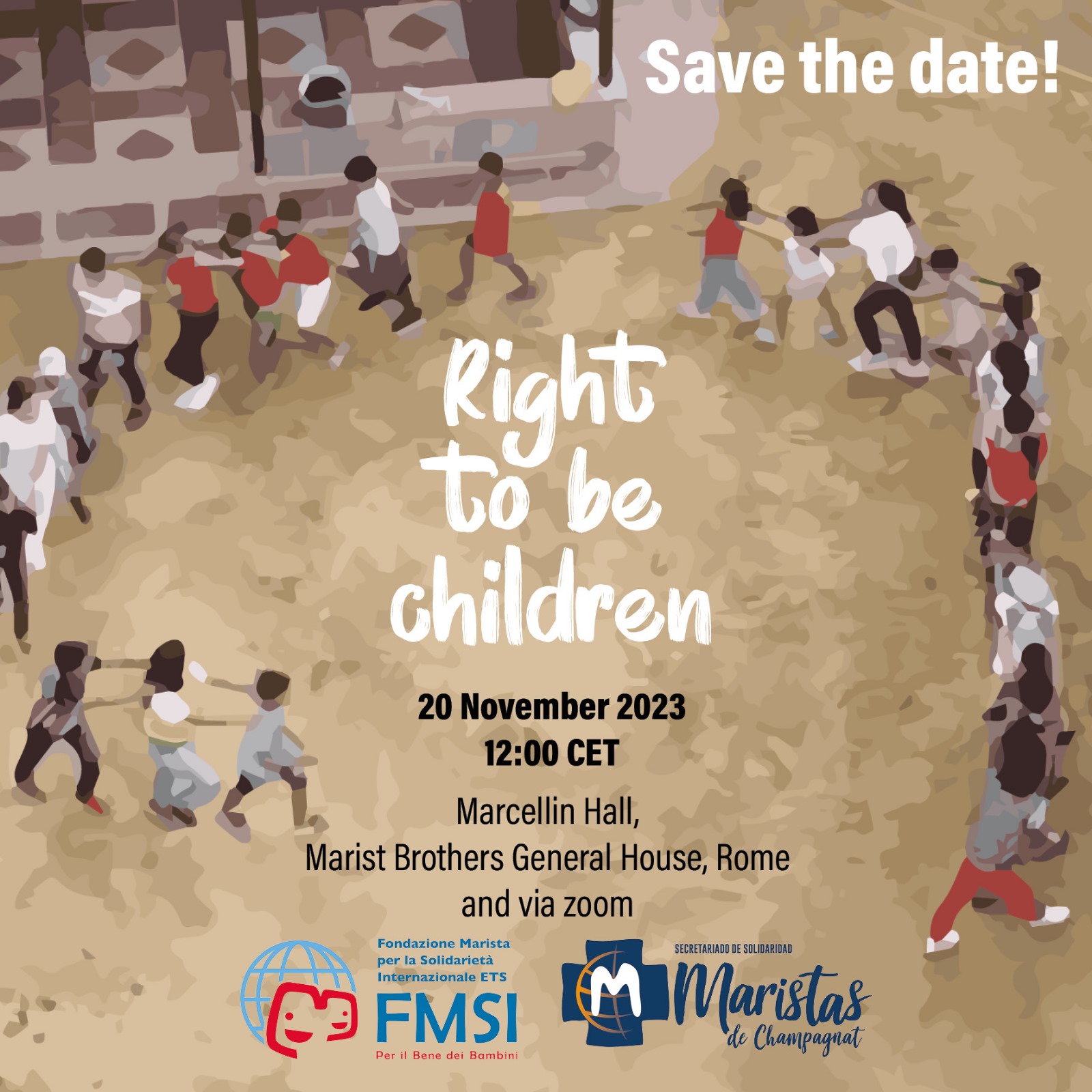
On November 20, 2023, the CCIG was invited to intervene as speaker in the hybrid event “Right to be Children” held in Rome (Italy) by the Marist Foundation for International Solidarity ETS (FMSI) in collaboration with the Secretariat for Solidarity of the Marist Brothers Institute.
As part of the celebration of the World Children’s Day, this event aimed to highlight challenges and difficulties involving boys and girls as well as to share knowledge, experiences and reflect on future actions in order to ensure that every child can fully enjoy his or her fundamental rights.
The Intervention of Ms Maria D’Onofrio, Secretary General of the CCIG, focused on international networking for child rights at the United Nations. In her presentation, Maria addressed two key questions, namely: How can civil society enhance the protection of children’s rights through the United Nations? and what is the added value of the networking of Catholic-inspired NGOs in the field of international advocacy?
The UN human rights system is meant to address human rights challenges gathering together three main constituencies, i.e., States, international UN experts and civil society organizations (CSOs). The goals of the United Nations (‘Peace, Security and Development through Human Rights’) cannot be achieved without the contribution of all the three.
On the ground, civil society actors including Catholic and Christian’s inspired NGOs, work with and for the most vulnerable individuals and communities, often reaching the remotest areas where no other assistance is provided. The irreplaceable services they provide have a considerable impact in terms of immediate response to the needs of affected populations. However, the structural societal factors allowing such human rights abuses to occur remain in place. Thanks to their proximity to the people suffering from serious human rights abuses, CSOs are aware of the real challenges encountered by victims of such violations and are therefore better placed to indicate the most effective measures to address these challenges. This unique knowledge, incomparable information edge and understanding of the local realities on the ground should be used not only to respond to urgent and daily needs of affected populations, but also to set up long-term structural and institutional changes that will prevent such abuses from occurring. This approach enables Catholic and Christian-inspired civil society organizations to go beyond the exceptional work of their direct-service ministries and to more comprehensively respond to the systemic causes of human rights abuses and the comprehensive needs of those who are most vulnerable not only in the short-term but also in the long-term.
In this context, join forces through more coordinated networking is important to gain more leverage in reporting information on human rights challenges encountered on the ground; give greater visibility to the issues on which action is needed; secure greater impact of advocacy actions even with limited resources; and to identify partners to rely on not only in Geneva but also at the local level.
To reaffirm the above through concrete actions, Maria shared a few examples of joint projects for the protection of children’s rights through the Universal Periodic Review, implemented in Bolivia, Papua New Guinea and Bangladesh in collaboration with the Marist Foundation for International Solidarity and other partners.
To consult the FMSI publication launched at the event, click here.
Image by FMSI